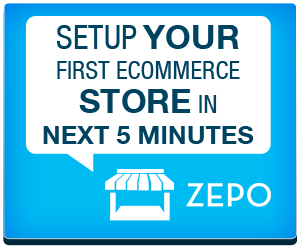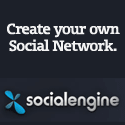Google+ doesn’t want to become Facebook. Instead, Google is betting it can become the platform that powers the entire web itself.
The future Internet will not just be driven by social; all things “social” will be what users experience as the web. The release of Google+ is a tactical move in a larger war for this future web – one that Facebook is arguably currently winning. Google, however, is readying its battalions.
Google’s behemoth of a footprint includes the world’s most widely used search engine, a ubiquitous paid search and display platform, the largest video-sharing site in the U.S. and a store of robust, free tools that millions access daily. Google+ is the social glue that will pull the Google forces together to race to become the next Internet – one with social permeating from every action taken by users online. Those forces individually are impressive, but when fully integrated, give Google visibility, integration, and convenience that will be unrivaled. The potential integration of Google+ into Gmail, Google Docs, YouTube, Google Reader, and other user tools is ridiculously impressive. It’s a gathering storm that could take control of the future web.
How Brands Fit In
We’re beginning to glimpse, through the eyes of brands, what the future web means. Probably the most powerful instance is search. Many brands are seeing Google+ Pages in the near-term as another channel to engage with users – and rightly so. It’s a chance to reach their audiences using social tools and have meaningful conversations with them. It’s still early; brand pages on Google+ only launched a few weeks ago. This is the approach many companies will also have to the new Twitter Brand Pages when they become available. Although these pages will be an additional avenue to connect with users and will provide more customizable branding opportunities, Twitter as a whole currently does not have the widespread reach of Google and Facebook.
Right now, Facebook is the dominant social media channel for companies, just as it is the frontrunner for the social web. But the introduction of Google+ creates a force to compete with what Facebook could become several years down the road if unchallenged.
This timing puts companies in a unique position. Unlike Facebook Pages, which many hastily launched to engage with a user base that was already active, brands can now stake a claim on Google+ first and then welcome new users as they arrive. Content-rich Google+ Pages will be waiting for users to seek out and engage with as soon as they create their accounts.
The effort by brands this early in the game will help Google+ grow its user base (a luxury Facebook did not have). All of that fresh content offered up to early adopters will help both retain them and encourage their friends to join – nudging the Google+ base further along the technology adoption lifecycle.
What’s Next?
From a short-term perspective, Google and Facebook seem to be waging a war to determine which will dominate the social scene. Does Google have more in its arsenal? Yes. Is Facebook adding weapons to respond? Yes. Where the difference lies is the audience. Users will shape the outcome of this struggle. Their preferences and behaviors will drive change, shaping the way each company approaches their domination strategies. For the time being, Facebook and Google+’s different audiences and approaches are making it possible for them to co-exist. Only time will tell when one will come out on top.
Source: Forbes
Pin It













